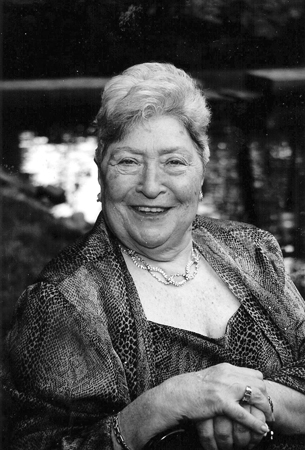Hopkins Honors the “Ultimate Nurse”
by Kelly Brooks
I started my day by eating at Miss Shirley’s café in Roland Park,” quipped Reverend Clyde Shallenberger. The audience let out an appreciative giggle, a bit stifled due to the solemn nature of the gathering. “But we’re here today to honor the real Shirley.” The Johns Hopkins Chaplain Emeritus then offered a prayer in memory of Shirley Friedman Sohmer—Hopkins nurse, mentor, mother, and friend.
Family, nurses, and neuroscientists all gathered this June in Hurd Hall, the room’s impressive height and dark wood paneling lending a somber atmosphere. They were there to honor Sohmer, who had worked at Hopkins for 35 years, becoming a legendary figure who, according to Judith Rhode, ScD, RN, Director of Nursing for Neurosciences and Psychiatry, upheld “values of partnering and collegiality that led to exceptional nursing practice.”
In 1969, Sohmer was recruited to the hospital’s newly established department of neurology. When she admitted to the department’s director, Dr. Guy McKhann, that she didn’t know much about brain disease, he replied “I’ll take care of the brain stuff, and you take care of everything else.” As McKhann related this story to those assembled, he paused thoughtfully. “And Shirley did,” he added.
Dr. Donlin Long recalled that in 1973, medical nursing and surgical nursing were two separate and distinct worlds—and Hopkins was planning to combine both in a new Neurosurgery/Neurology unit. “People said that it couldn’t possibly be done at Hopkins or anywhere else,” said Long. “Well, Shirley did it, and she created a model for the rest of the world. She used to say, ‘I don’t believe in medical nursing or surgical nursing. I believe in good nursing care, and that’s universal.’”
By 1988, when Karen Haller, PhD, RN—now the Vice President of Nursing and Patient Care Services—arrived at Hopkins, Sohmer was an accomplished guide and mentor. “She was never prescriptive, never blamed or shamed, always encour-aged and lifted up. She had that warm smile, with those genuine smile lines by her eyes, so you could hear what she had to say, be the message good, bad, or ugly.”
And Sohmer mentored the medical residents too. “The students all knew her by name, they could go to her, and they did,” recalled Dr. J. Raymond De Paulo. “She was a moral compass who valued people first.”
“She really was the ultimate nurse,” agreed Rhode. “We’ll always think of Shirley as the founder of Hopkins Neuro Nursing.”
